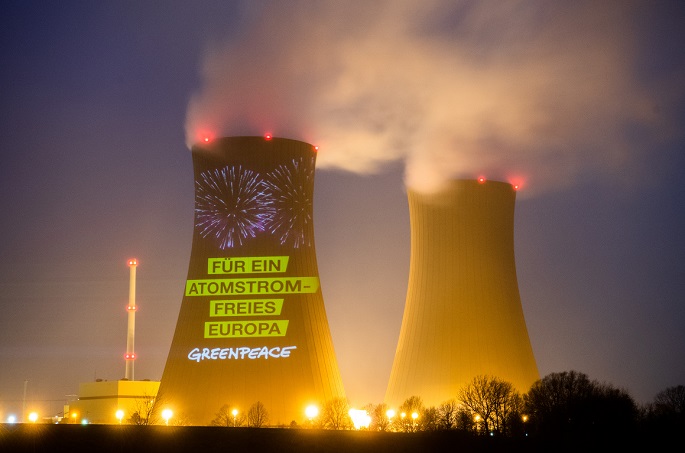EU nuke investment proposal met with pushback
Published : 02 Jan 2022, 21:12
Government ministers in Germany and Austria have spoken out against a controversial proposal by the European Commission, reported dpa.
The Commission plans to classify certain investments in gas and nuclear as climate-friendly.
"Labelling nuclear power as sustainable is wrong in the EU - and is absurd by global standards," German Development Minister Svenja Schulze told dpa on Sunday.
"Nuclear power is too risky, too expensive and too slow to help the world protect the climate. It will therefore never account for more than the roughly five per cent of the global energy mix that it does today," she said.
For developing countries, nuclear energy is "not an option for good reasons," Schulze added, pointing to wind and solar plants as a much better alternative.
Austrian Climate Action Minister Leonore Gewessler threatened to take legal action against the proposal.
"Should these plans be implemented as they are, we will sue," Gewessler tweeted on Saturday.
She also accused the European Commission of trying to "greenwash" nuclear power and natural gas. "Nuclear power is dangerous and not a solution in the fight against the climate crisis," she added.
The commission announced the draft legislation on Saturday, further fuelling an ongoing dispute within the European Union over what the term "clean energy" means.
Supporters of the proposal argue that gas-powered plants, by virtue of being cleaner than coal plants, help economies on the path to an environmentally sustainable future. Likewise, they argue that nuclear power should be labelled "clean energy" as it emits no greenhouse gases.
But opponents counter that gas-powered electricity generation is still insufficiently clean and point to the long-term risks of radioactive waste produced by nuclear power.
The commission proposal sets out strict conditions for classifying investments as climate-friendly.
For example, investments in nuclear power plants would only be counted as green if they use the newest technological standards and include a concrete plan for disposal of atomic waste to go into use by 2050 at the latest. Moreover, construction permits for new nuclear power stations must be obtained before 2045.
The commission's bill also sparked debate in Italy, where Matteo Salvini of the far-right party Lega floated the possibility of once again building nuclear power stations on Italian soil.
Italy phased out nuclear power in the late 1980s following the Chernobyl disaster.
"Italy cannot stand still," Salvini tweeted. "Lega is also ready to collect signatures for a referendum that will lead our country into an independent, safe and clean energy future."
Italy gets part of its electricity from abroad, meaning that nuclear power may still make its way onto the grid.
In a 2011 referendum, the Italian people rejected a return to nuclear power. A number of political parties, including the populist Five Star Movement, which is in a broad coalition government with Lega, continue to reject nuclear power today.
However, a dramatic increase in gas and electricity prices in recent months has become one of Italy's most pressing political issues.


